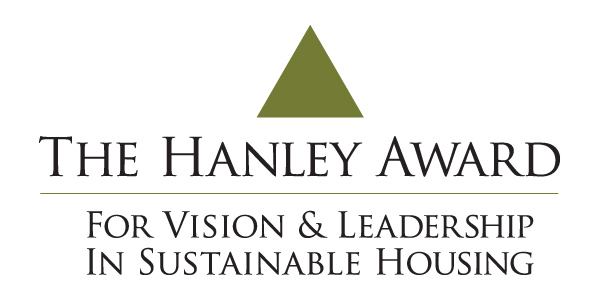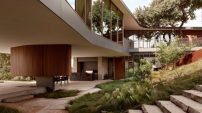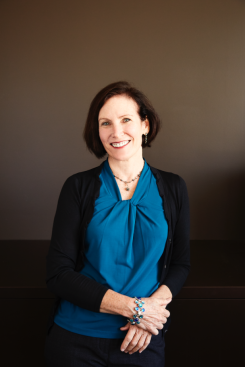
Photo by Amanda Friedman
Rebecca Clark has been at the helm of LINC Housing since November 2014.
For over three decades, LINC Housing Corp. has lived up to its name. LINC, an acronym for limited-income communities, has provided housing and services for Southern California residents not able to afford to own or rent homes in the notoriously expensive housing market.
The Long Beach, Calif.–based nonprofit got its start in 1984, when regional government stakeholders realized escalating land costs were pricing out retired teachers, young working families, and service-sector personnel. To address this affordability crisis, the Southern California Association of Governments formed a nonprofit named Corporate Fund for Housing. After gaining experience and relationships from its early developments, it expanded its mission, staff, and service area and became LINC Housing.
The cost of housing has escalated in California as well as the rest of the nation, with more than one in four renter households spending over half of their income on rent. While LINC’s mission hasn’t changed, it has broadened to provide a continuum of housing needs.
“What’s happened over time is the crisis is affecting a much wider band of the income spectrum,” says LINC president and CEO Rebecca Clark. “You have many who really are the hardest to serve and have the greatest needs. We’re working to serve that lowest-income population, some with no income, as well as recognizing that there are people in the retail industry, teachers just starting out, or service professionals that don’t make enough to truly afford a market-rate unit.”
To date, the nonprofit has helped to create more than 7,800 homes in 76 communities, including what’s currently under construction. These developments are providing homes for working families, seniors, veterans, formerly homeless, developmentally disabled, and young adults aging out of the foster-care system.
For its innovative work, LINC has earned the 2017 Hanley Award for Community Service in Sustainability from The Hanley Foundation and Hanley Wood, publisher of BUILDER. The award, with its $25,000 grant, recognizes community-based and nonprofit organizations working to advance sustainability and environmental awareness. The nonprofit will be honored at a reception and gala in Los Angeles this month.
“If we cannot provide well-located, affordable, and sustainable housing to the people who serve our communities, our communities can’t thrive and we are all negatively impacted,” says Michael J. Hanley, president of the Hanley Foundation. “LINC Housing is an astounding example of an organization committed to providing vital housing and related services to those who need it most.”
Scaling Sustainability
In addition to providing housing for limited-income individuals and families, LINC has long been committed to making its homes sustainable and healthy for residents.
Former LINC CEO Hunter Johnson, who retired in 2014, was instrumental in holding the nonprofit to higher green standards, striving for new developments to be LEED certified and making older properties in the portfolio more energy efficient.
“We enjoy a very strong partnership with LINC Housing,” says Kevin Kilbane, managing director of West Coast acquisitions for Raymond James Tax Credit Funds, which has completed several deals with LINC. “Its affordable housing communities serve as a catalyst for community improvement by providing safe, high-quality, energy-efficient, and environmentally sustainable housing to a diverse range of residents that includes seniors, families, and homeless/special-needs populations.”
In 2012, LINC formed SEED Partners, a mission-driven energy and water services company that brings sustainability to existing multifamily housing communities. Specializing in sustainable retrofits, SEED Partners has rehabbed 21 of LINC’s properties, resulting in approximately $140,000 per year in savings for owner-paid energy and water costs.
“[Green building] has a quadruple bottom line. It not only works to make buildings more efficient, but also reduces energy costs for residents and creates healthier units, saves money on the operating side, and helps the environment,” says Clark. “Climate change is real, and our resources are scarce and vulnerable. We can’t change it alone, but we have to do our part.”
LINC Cares, the nonprofit’s social services arm, continues to engage clients on sustainability after they move in. This includes providing new residents with sustainability gift bags, an after-school curriculum for children to learn about solar power and recycling, and workshops on energy efficiency and green household tips. “If your residents don’t buy into water and energy conservation, all of the other improvements that we have done aren’t as effective,” says Nina Dooley, a LINC vice president.
Collaborative Approach
One of LINC’s recently completed developments, Mosaic Gardens at Willowbrook in Los Angeles County, showcases the developer’s attributes.
“This project brought LINC together with community partners, county leaders, and other neighborhood nonprofits to figure out how we could work side by side to transform a neighborhood, provide affordable housing, and improve people’s lives,” says Clark, who notes that others had tried to build in this community before but failed to earn the residents’ trust. LINC staff members, according to Clark, sat in people’s living rooms and churches to hear residents’ visions for housing in this area.
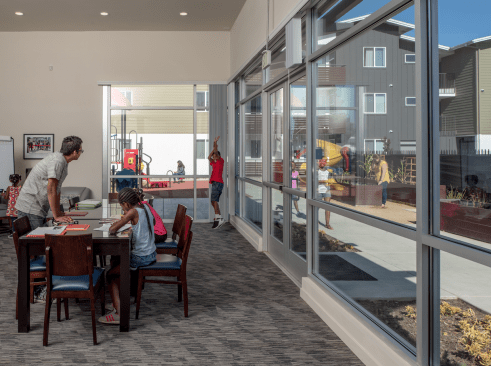
The community room at the Mosaic Gardens at Willowbrook.
Half of the project’s units are for formerly homeless residents; the remaining units serve families earning up to 60% of the area median income.
Located in an unincorporated area in south Los Angeles, the development pays tribute to the area’s agrarian history with a ranch-style feeling and retains a notion of country living in the city. It includes community gardens for residents to grow their own food, a community kitchen, and a tot lot and small field for children to play.
The LEED Platinum development touts energy efficiency and water conservation and incorporates a range of environmentally friendly products such as green-certified flooring; locally produced cement; low-VOC paints, adhesives, and sealants; Energy Star appliances; low-flow toilets, showers, and faucets; drought-tolerant plants; and high-efficiency irrigation.
Expanding Pipeline
As LINC has historically focused on housing and services, it will continue to broaden its mission to focus on the entire community. It has a steady growth of affordable housing development in the pipeline, looking at about 900 units in the next two years. It also is focusing on more mixed-use projects to bring in complementary partners and tenants, such as grocery stores, clinics, and gyms, for a bigger community impact.
“We really recognize that we have to expand,” says Clark. “It’s not just numbers to us, it’s impact. This strategy with relationships goes deep. We can’t be an expert in everything, and we know there are so many great organizations out there in every community to partner with.”
One example of this community development work is The Spark at Midtown in Long Beach. LINC recently won the request for proposal to create 95 housing units for low-income families and the formerly homeless. Its main tenant on the ground floor will be the YMCA. A bike parking and services area also is planned to encourage sustainability and a reduced carbon footprint.
“We’re just notching all of this up,” notes Clark, “and the partnering has resulted in more developments and the ability to create more impact.”
-
Rick Fedrizzi, Environmental Pioneer, Wins The 2016 Hanley Award
The co-founder of USGBC has dedicated his life to making the built environment more sustainable and healthier, and the world is a better place for it.

-
How Skid Row Housing Trust Is Changing Minds
The L.A. nonprofit earns the 2016 Hanley Award for Community Service in Sustainability.
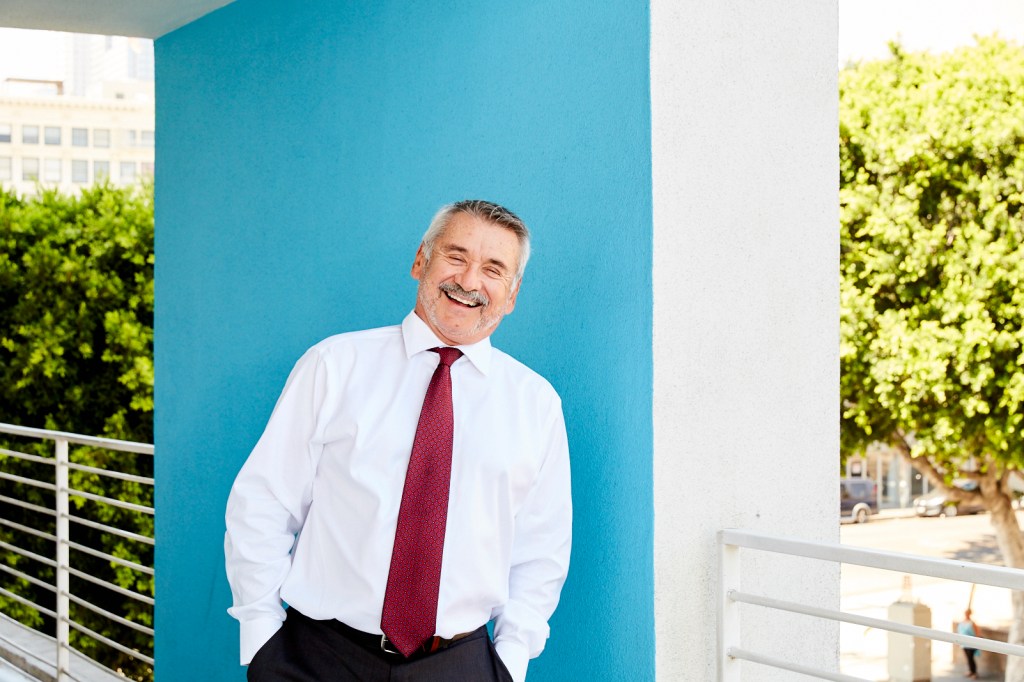
-
2015 Hanley Award Winner: Gail Vittori
The 2015 winner of the Hanley Award for Vision and Leadership in Sustainability has forged new ways of thinking within the green building and health care industries.
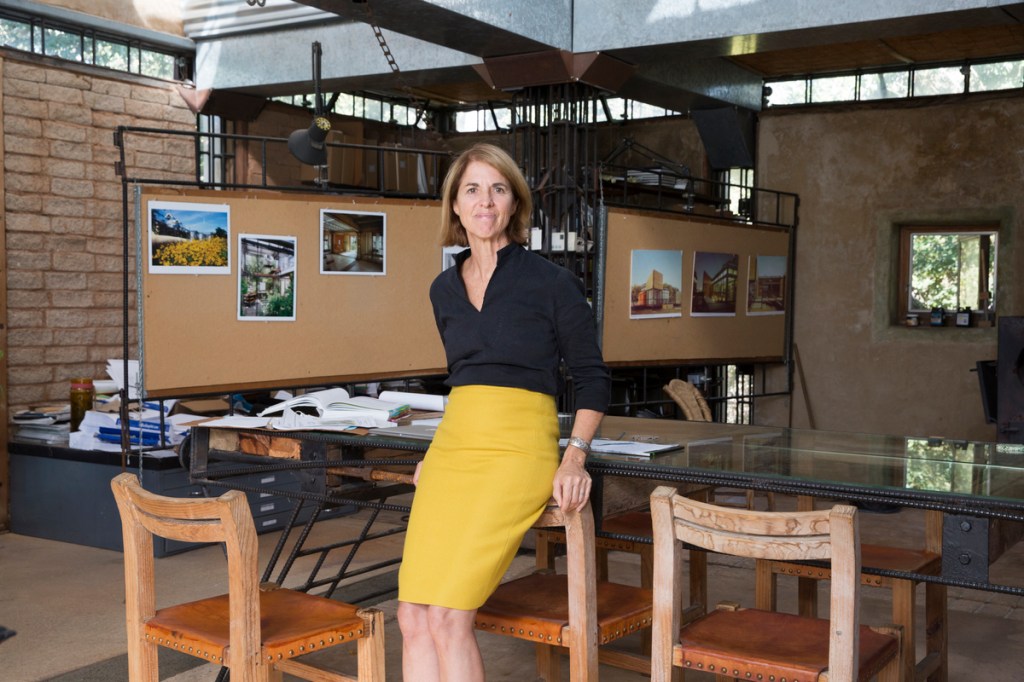
-
2015 Hanley Award Winner: Chesapeake Bay Foundation
The recipient of this year's Hanley Award for Community Service in Sustainability has made pioneering investments in sustainable construction, including two of the world's greenest buildings.
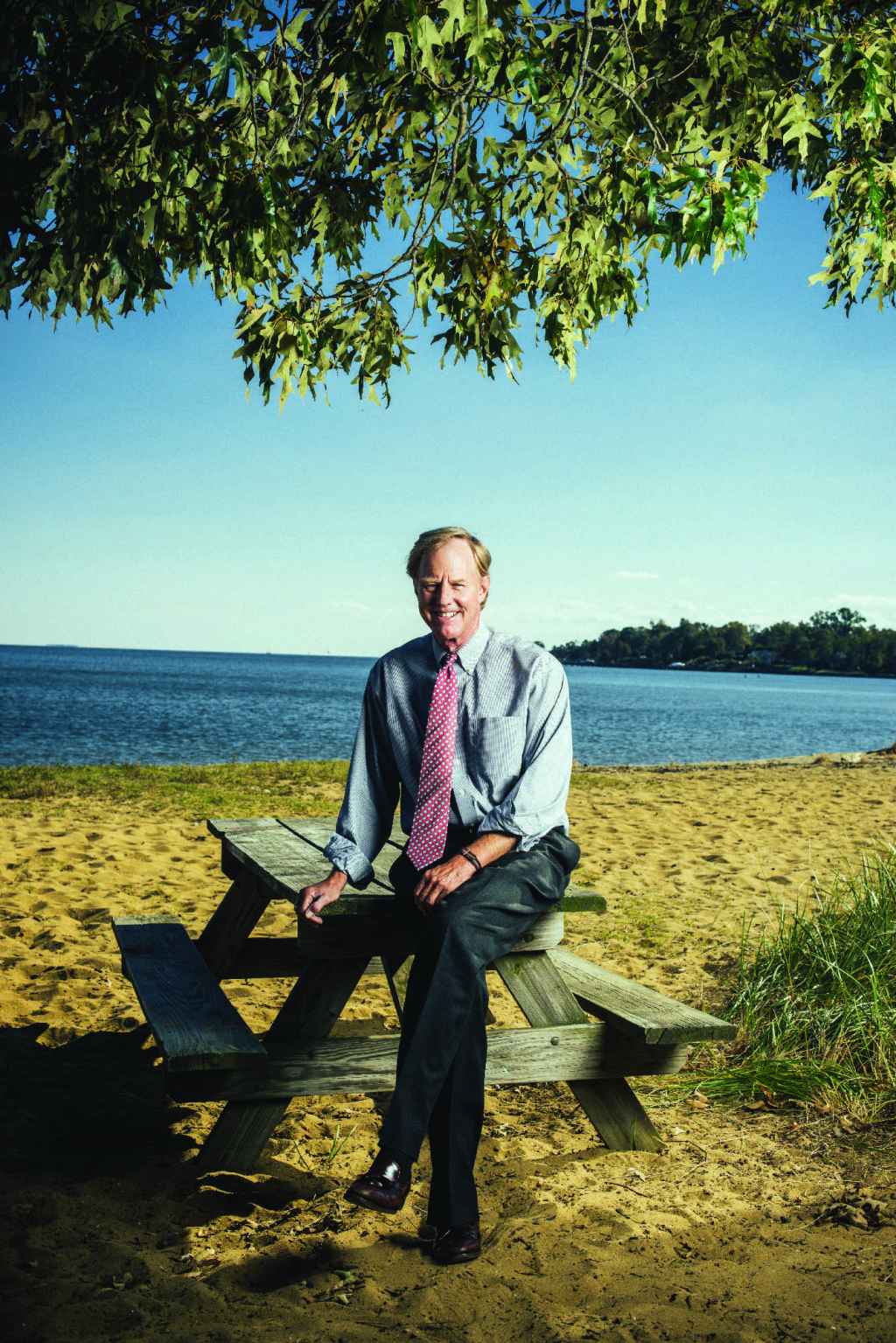
-
2014 Hanley Award Winner: Make It Right
For neighborhoods left in the wake of tragedy, Make It Right provides not just a place to live, but a place to regain pride, ownership, and community.
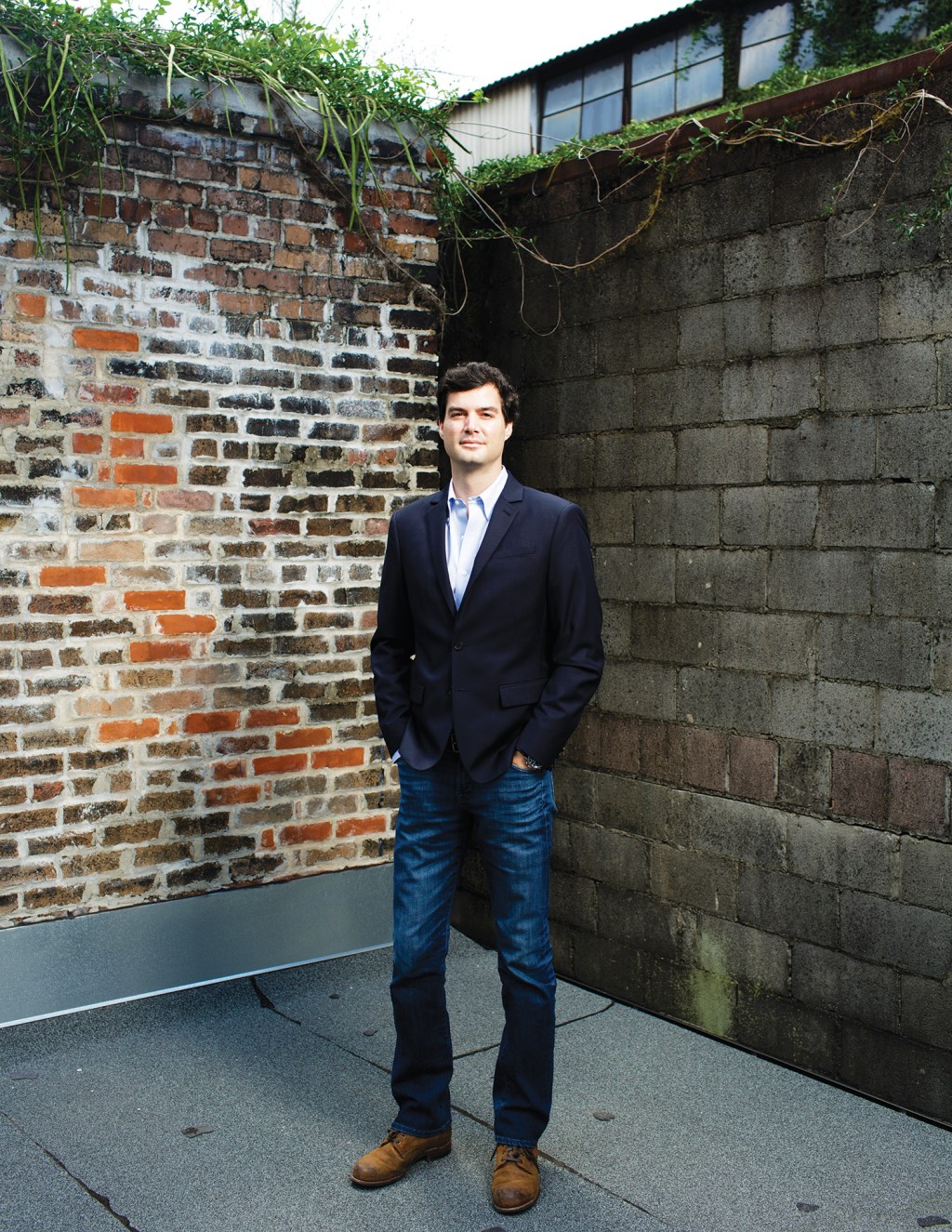
-
2014 Hanley Award Winner: Bob Berkebile
A rebel with a cause, architect Bob Berkebile’s ultimate vision is of a sustainable model so powerful that it justifies itself.
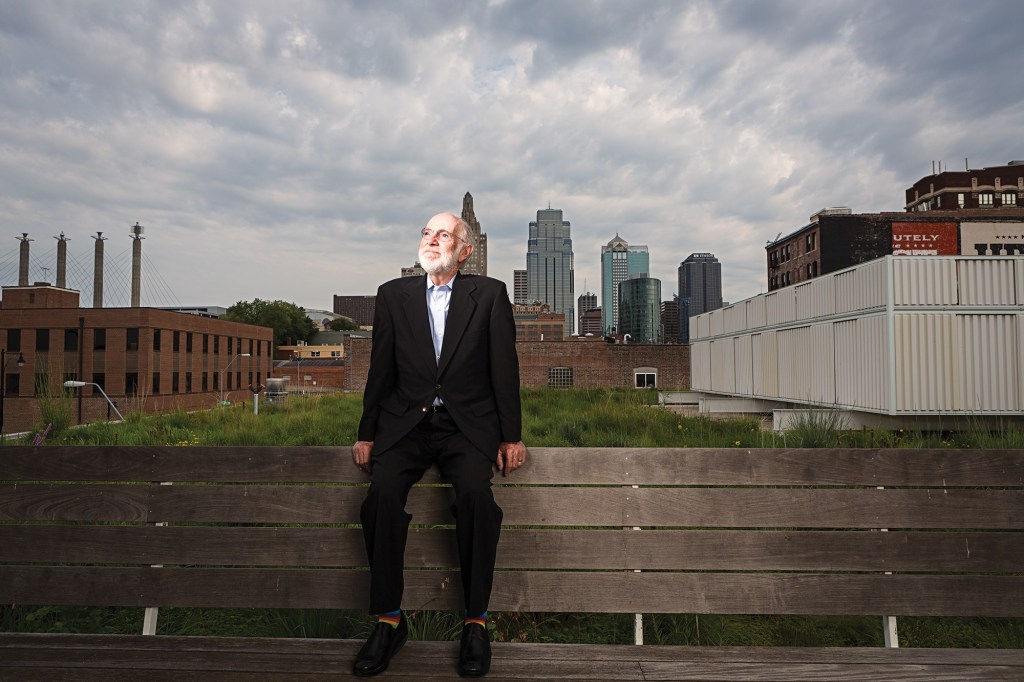
-
Dennis Creech Wins the Hanley Award for Vision and Leadership in Sustainable Housing
An outstanding advocate for high-performance housing, Southface founder Dennis Creech is the 2013 winner of the Hanley Award for Vision and Leadership in Sustainable Housing and its $50,000 prize.
-
Sam Rashkin, Winner of 2012 Hanley Award for Vision and Leadership in Sustainable Housing
His greatest legacy may be the federal Energy Star for New Homes program, which he founded.
-
Alex Wilson Selected for the 2010 Hanley Award for Vision and Leadership in Sustainable Housing
Annual $50,000 award from The Hanley Foundation and EcoHome recognizes visionary environmental building editor, educator, and advocate.
